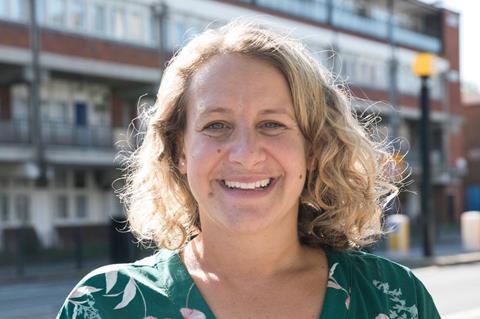Jesus is grieved by the vast wealth inequalities between our churches, says Suzy Stride

My mum is as working class as working class come.
Born in the East End in the 60s, her family stole blankets from a local factory as they had none. They often went without food and sat on milk crates for chairs. Mum was expelled from school and was part of a local gang. Her first interaction with the church happened when her gang tried to disrupt the church Christmas event, and my dad (the vicar’s son) and his brother had to drag them out.
A few years later, mum was smoking a fag in the school toilets and her mate told her about seances - something that scared my mum but opened her up to the thought that the spiritual might be real.
She visited Christ Church Spitalfields in the 1970s, when my Grandad, The Rev Eddy Stride was vicar. Mum remembered him as non judgemental, down to earth and someone who “got her”.
When my Grandad retired in the late 80s, he had to get back 22 front door keys from 22 separate people - that shows you how much of a community home it was, with my mum and her siblings remembering sitting in the rectory kitchen drinking a cup of tea and eating toast, feeling welcomed and loved. Their whole family came to know Jesus through my Grandad and Grandma’s ministry in the East End. My mum now serves as a church leader in Tower Hamlets, a stone’s throw away from where she was born.
Why do I tell this story? Because the greatest dividing line in the UK is not gender or race (though these are still vast). It is class. And in seeking to answer the question, “how can the church in the UK better engage working class people?”, we don’t need a list of tasks. We need a change in attitude.
Middle class accents and voices dominate in the media, in politics and in the Church.
Sometimes it seems that if you want to be in the church, or to aspire to church leadership, it requires you to let go of your working class identity and ways and instead adapt to middle class culture in order to fit in.
In order to see change, we have to raise up leaders from working class backgrounds. We need church leadership that reflects the diversity of its community, including socio-economic backgrounds.
When I asked some friends from working class backgrounds what has helped them to feel more at home in church, they said “its important not to patronise working class people, or look down upon them”, “it sometimes seems like the higher up church authorities want church leaders that all speak the same, with the same education, often also looking the same. Working class people may not have the same opportunities and education but are just as intelligent and bring different skills and gifts - but these are not always valued.”
There are ‘mega’ wealthy churches full of millionaires in parts of London, while in the East End churches struggle to afford a family worker
It was the youth club which first drew my mum into the church, and for a lot of working class people church trips to the countryside, church holidays and events that enable friendship building is key. These are the things that bring down the walls. Church football clubs are also a great way of engaging with working class communities.
Consistent presence is important. Often in poorer areas you have middle class people joining churches but after five years they move on and you see a high turnover - as opposed to people that put down roots.
In Acts 4:32-25, the church shared and gave according to need. Yet we have a situation in London where some churches are ‘mega’, wealthy, and full of millionaires, while in the East End, for example, there continues to be huge levels of need, the highest child poverty rates in the country, and local churches irrespective of denomination struggling to afford to employ a family worker. This cannot be right.
I believe Jesus is grieved by the vast wealth inequalities between church families. Those larger, wealthier and incredibly well resourced churches should send their people out into churches in poorer areas (not just church plants, though these can and have been effective). Give your people and resources to churches in poorer areas in order to help them see his kingdom come.
No other country has the class divide that we have. We may not call it class or recognise it as class, because it can be hard to define - it is about poverty and disadvantage but it’s also about difference - and what is seen as “good” and not so “good”. The church should be leading the way in breaking down these walls. Let’s pray that in the coming years we will see that change.


































1 Reader's comment